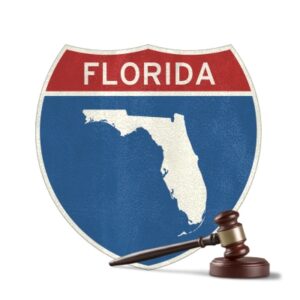“Do the new laws affect our community?”
 By: Colby Keefe, Esq.
By: Colby Keefe, Esq.
Each year, it seems, the Florida legislature revises or adds laws that apply to homeowners’ associations, condominium associations, and cooperative associations. But some board members may be surprised – and possibly relieved – to learn that some of the new laws do not apply to their communities.
Do the new laws apply to your community?
It depends on whether the community’s documents incorporate amendments to the Condominium Act and Homeowners’ Association Act through the use of Kaufman language; whether the new law is procedural or substantive in nature; and whether the new law explicitly states that it applies retroactively.
With an active legislation session, it is more important than ever for boards of directors to consult with legal counsel and determine which new laws affect their community.
What is Kaufman language?
 Depending on how long you have served on the board of directors in Florida, you’ve likely heard the phrase “Kaufman language.” Named after the case from which the principle was born, Kaufman language refers to the phrase “as amended from time to time.”
Depending on how long you have served on the board of directors in Florida, you’ve likely heard the phrase “Kaufman language.” Named after the case from which the principle was born, Kaufman language refers to the phrase “as amended from time to time.”
These six words can have big repercussions in your community and may determine whether updates to the Condominium Act or Homeowners’ Association Act automatically apply to your governing documents.
What makes land subject to a community association?
 Depending on who you ask, you could get a variety of answers to this question: a declaration of condominium; a declaration of covenants, conditions, and restrictions; the deed restrictions; CCRs; or simply declaration. While these terms are not exactly synonymous with each other, they are all part of the same broad category of contracts. The declaration that gets recorded and encumbers real property making up the condominium or homeowners association is a contract. As such, the contract terms bind subsequent owners of the property to comply with the terms of the recorded declaration.
Depending on who you ask, you could get a variety of answers to this question: a declaration of condominium; a declaration of covenants, conditions, and restrictions; the deed restrictions; CCRs; or simply declaration. While these terms are not exactly synonymous with each other, they are all part of the same broad category of contracts. The declaration that gets recorded and encumbers real property making up the condominium or homeowners association is a contract. As such, the contract terms bind subsequent owners of the property to comply with the terms of the recorded declaration.
The contracts clause is a principle of both federal and state constitutional law which generally stands for the concept that parties are free to contract with each other without governmental interference, and that the government (including its legislative branch) is prohibited from enacting any law that impairs substantive rights vested to any party under a contract. In the community association context, this means that the declaration contractually binds the owners and the association to its terms. New legislation generally cannot interfere with the contract terms set forth in the declaration.
Where a declaration makes reference to Chapter 718 (the Condominium Act) or Chapter 720 (the Homeowners’ Association Act), the full text is usually along the lines of the following: This community is a condominium association [or homeowners’ association] subject to Chapter 718 [or Chapter 720], as it may be amended from time to time. By using this phrase, the contract automatically incorporates future changes to the Act, and those amendments made by the legislature will apply to the community. Alternatively, if the declaration instead refers to Chapter 718 or Chapter 720 without such language, the Act as it existed as of the date of the declaration being adopted will control.
Is the new law a procedural change?
 Some new legislation will apply to your community regardless of whether you have Kaufman language or not. At first glance, this contradicts the contracts clause explained above. However, the contracts clause protects vested substantive rights – a law that is solely procedural, rather than substantive, in nature can apply automatically to a community.
Some new legislation will apply to your community regardless of whether you have Kaufman language or not. At first glance, this contradicts the contracts clause explained above. However, the contracts clause protects vested substantive rights – a law that is solely procedural, rather than substantive, in nature can apply automatically to a community.
Undertaking a substantive vs. procedural analysis is arduous, but the timelines required for notices are a good example to illustrate the distinction. Prior to 2021, in condominiums, the association was required to give an owner 30 days’ notice that a delinquent assessment was due and, until those 30 days expired, the association could not proceed with recording a claim of lien. In 2021, the Condominium Act was amended to extend the 30-day time period to 45 days, which matches the Homeowners’ Association Act timeline.
This change was procedural in nature, and applies to all condominiums in Florida regardless of whether the declaration incorporates Chapter 718 as amended from time to time. However, if the new law had stated that an owner who has an alternative mailing address located outside the state of Florida will be given 45 days, rather than 30 days, to pay, the law would become substantive in nature and would not automatically apply to all condominiums.
Therefore, when considering whether a new law will apply to a community association, it is important to consider whether it is procedural or substantive in nature.
Substantive statutes with mandatory application
 Even still, if your community’s documents do not have Kaufman language, and the new law is substantive rather than procedural, there are some instances in which the law will nonetheless apply to your community.
Even still, if your community’s documents do not have Kaufman language, and the new law is substantive rather than procedural, there are some instances in which the law will nonetheless apply to your community.
Periodically, the legislature will explicitly include language to make it clear that the law should be applied retroactively, or that it is being enacted to clarify existing law. In such cases, the law established by the statute was already in existence and is merely being clarified by the new law; therefore, it will likely apply to the community.
Other times, the legislature may adopt a change that, despite being substantive, is enacted for the public health, safety, or welfare of the parties, in which case the state can enact laws that would otherwise violate the contractually vested rights of the party. An example of this is the Condominium Act’s insurance requirements, which begin by stating:
In order to protect the safety, health, and welfare of the people of the State of Florida and to ensure consistency in the provision of insurance coverage to condominiums and their unit owners, this subsection applies to every residential condominium in the state, regardless of the date of its declaration of condominium.
Statutes which are remedial in nature or which are intended to apply retroactively must still pass a constitutionality test, but as illustrated above, competing constitutional principles (including police power) can affect the outcome.
Bottom Line
So, do the new laws apply to your community? If your community has Kaufman language, they typically will. Otherwise, your community should consult with legal counsel for a thorough analysis to determine whether your board of directors needs to update its policies and practices to comply with new legislation.
Click here to download a printable PDF of this article.

